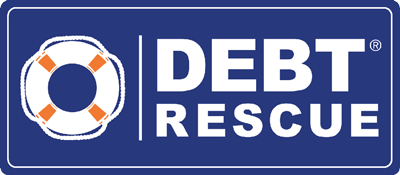From payday lenders to financial counsellors, the list of services offering to get you out of debt is growing. However, some will actually put you in more debt before they help you. A Registered Debt Agreement Administrator does the opposite; they reduce debt though a Debt Agreement.
A Part 9 Debt Agreement is a Bankruptcy Act legislated agreement between you and your creditors. It is a positive solution which outlines a new payment arrangement for your debt, which is more affordable for you. A Registered Debt Agreement Administrator is a registered practitioner who will help you prepare and lodge your agreement. Like all financial services, there are strict rules and regulations in place and Registered Debt Agreement Administrators must comply with industry standards set out by the Australian Financial Security authority.
The Need for a Registered Debt Agreement Administrator
The Australian Financial Security Authority (AFSA) provides all the documents and information you need to enter a Part 9 Debt Agreement on your own. However, the process can be quite complicated, especially if there are a number of creditors involved, and many people can find it daunting and over whelming. A Registered Debt Agreement Administrator is a professional debt negotiator. They can approach your situation from a different perspective, speak to your creditors on your behalf, negotiate your debts, lodge your documentation and monitor your Debt Agreement over the coming years. You can apply for a Debt Agreement on your own, but your don't have to.
A Brief Overview of Negotiating a Debt Agreement
First, you must make a list of all your debts. It is incredibly important to not forget or miss any debts. You must also know whom you owe your debt to. Some creditors will sell debts to debt collection companies. The best way to find all your debts is to check your credit file. You can do this for free here. Once you have an idea of all your debts, you need to create a budget outlining all your essential ongoing expenses. These include rent/mortgage, utilities, petrol, car payments, school fees, groceries, etc.
Once you have covered your essential expenses, you need to show you have enough money left over to make your Debt Agreement repayments. This is the figure you will put forward to your creditors as your Debt Agreement repayment amount. You must ensure you can afford to live comfortably and repay your secured debts, but also offer enough to your creditors to satisfy your commitments. Once you put your Debt Agreement proposal forward, your creditors will vote and if they vote in favour, your existing debts will be rolled into your Debt Agreement repayments. A Debt Agreement is a legally binding document so you must honour the terms of the agreement.
So Why Use a Professional?
Using a registered Debt Agreement Administrator is much the same as using an accountant to do your tax. Debt Agreement Administrators are professional debt negotiators. They chase your debt, speak to your creditors, organise a budget and will manage your Debt Agreement ongoing. Registered Debt Agreement Administrators offer a professional service and will charge a fee. Each company is different so fees will vary must they will often be built into your Debt Agreement repayments so they are affordable and easy to manage.
Finding a Registered Debt Agreement Administrator
Before you enquire with a debt relief company, look for their Registered Debt Agreement Number. This proves they have registered with AFSA and therefore are compliant with the industry rules and regulations. This number will appear on the website and letterheads of the Debt Agreement Provider.
AFSA keeps a list of Registered Debt Agreement Administrators and their contact details.
At Debt Rescue, we have a team of registered Debt Agreement Administrators. Together with our friendly Case Managers, they will tailor the best solution for your situation. For more information and an obligation free assessment, call 1800 003 328 today.
For more information on Debt Agreements and how they can help you find financial relief, check out our Debt Agreement page.
-137x60px.png)




